“Once you overcome the one-inch tall barrier of subtitles, you will be introduced to so many more amazing films”. Bong Joon-ho’s words rang out like a clarion call at the 77th Golden Globe Awards, where ‘Parasite‘ won in the best foreign-language film category.
Joon-ho, the South Korean filmmaker, is easily one of the best directors in international cinema today. His works have embraced elements of dark comedy, nail-biting thrills, and not to mention social themes, making his art as aesthetic as it is political.
He has been directing movies since 2000 and has a number of acclaimed projects under his belt. However, with his recent movie, Joon-ho has outdone himself. Although he was always revered by cinephiles in their niche circles, becoming a part of the mainstream discussion automatically means more attention. Naturally, since he is making waves in the world of cinema, you might be eager to know about his body of work. Here, we bring to you the list of all Bong Joon-ho movies, ranked from worst to best.
7. Barking Dogs Never Bite (2000)
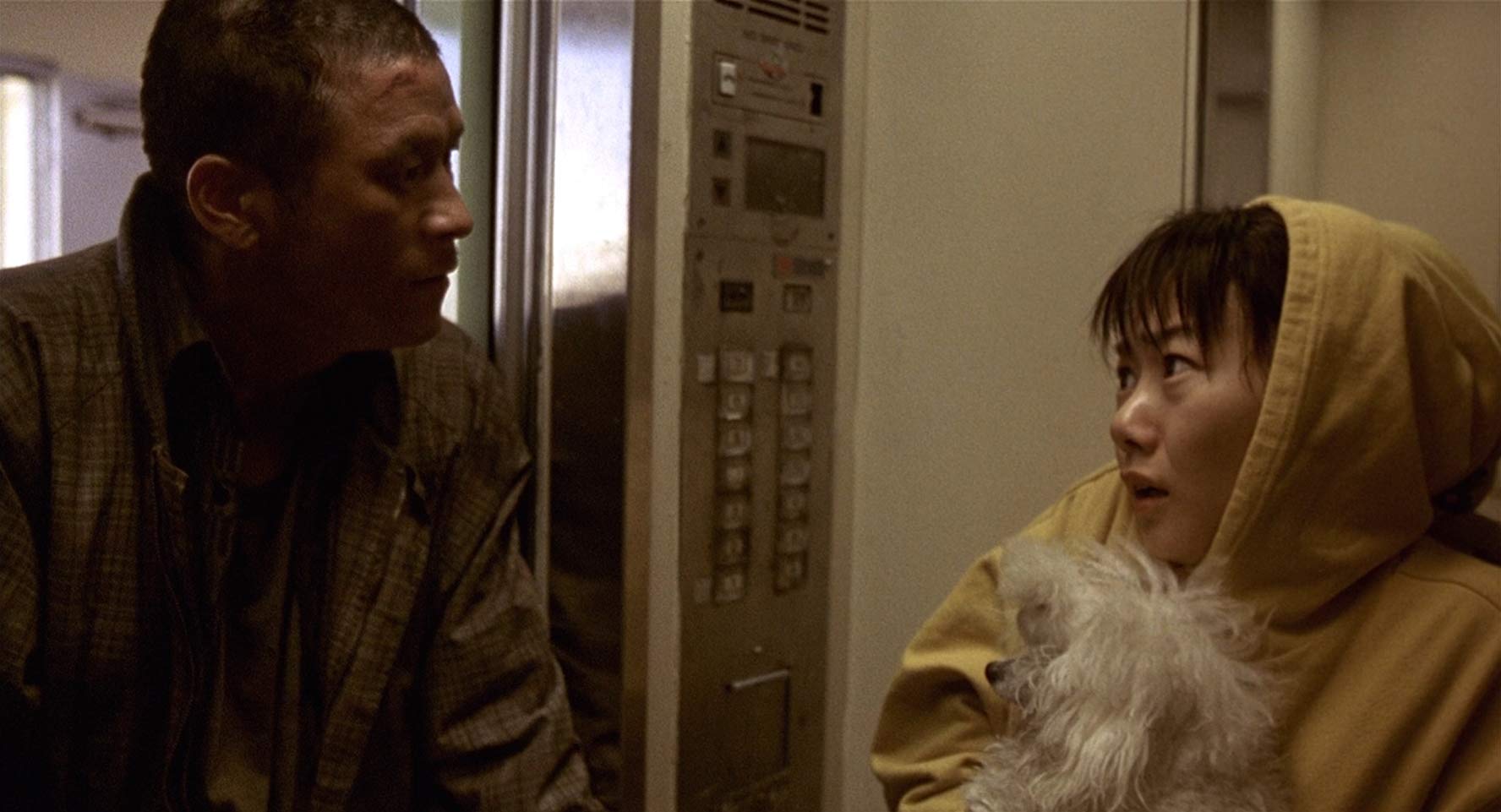 Bong Joon-ho’s debut film shows that he is firmly a part of the Korean New Wave, from which directors like Park Chan-wook and Kim Ki-duk emerged. ‘Barking Dogs Never Bite’ basically follows the tale of a man wanting to be a professor. He is irked by the sound of a barking dog, while his lack of money and strained relationship with his wife, prey on his mind.
Bong Joon-ho’s debut film shows that he is firmly a part of the Korean New Wave, from which directors like Park Chan-wook and Kim Ki-duk emerged. ‘Barking Dogs Never Bite’ basically follows the tale of a man wanting to be a professor. He is irked by the sound of a barking dog, while his lack of money and strained relationship with his wife, prey on his mind.
The discovery of a Shitzu leads to an adventure where an aspiring heroine tries to solve the disappearance of the dogs. Thrown into the mix, is an old lady, who cannot bear the loss of her dog and a janitor who enjoys eating dog meat. In Joon-ho’s first movie, the plot shifts to show how the director is willing to experiment and break the rules.
However, it also sets the tone for upcoming movies from Bong, as we see him subtly explore the various degrees of need in an apartment building – ranging from the homeless man’s plight to the mildly discomforted aspiring professor. Using the main story to comment on what happens in the periphery, ‘Barking Dogs Never Bite’ is a gripping watch but lacks the polish of Joon-ho’s later films.
6. Snowpiercer (2013)
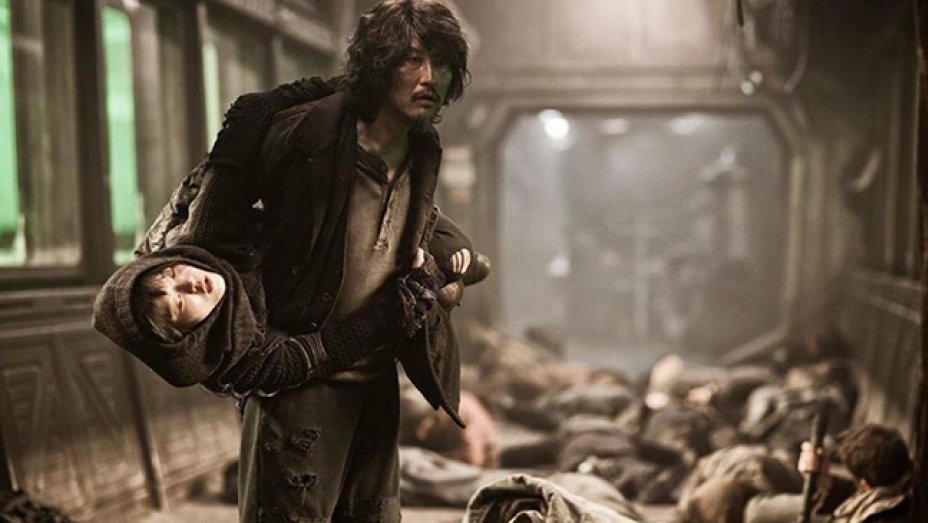 With fame comes money, and Bong Joon-ho was a bankable name by the time he decided to make ‘Snowpiercer’, based on ‘Le Transperceneige’, the French graphic novel by Jacques Lob. Starring the likes of Chris Evans, Tilda Swinton, and Ed Harris, ‘Snowpiercer’ is marked by fantastic performances.
With fame comes money, and Bong Joon-ho was a bankable name by the time he decided to make ‘Snowpiercer’, based on ‘Le Transperceneige’, the French graphic novel by Jacques Lob. Starring the likes of Chris Evans, Tilda Swinton, and Ed Harris, ‘Snowpiercer’ is marked by fantastic performances.
The premise follows a dystopian situation, where climate change has forced the remnants of humanity to move to a train, which has all the amenities and is not affected by outside weather. Automatically, there is a class disparity on this train, with the elite enjoying the luxuries, while the poor exist in cramped conditions.
A plan is made, to progress through the train’s complex locked door systems, to confront the elite. While the class mobilization themes are overt in ‘Snowpiercer’, the movie stands out more due to the action sequences. Shooting a film in a train can be restrictive, by Joon-ho’s creative visuals make for a visceral experience.
One only has to think of the brawl in the dark, shown from a first-person perspective. ‘Snowpiercer’ has gone on to become a hit, but many will remember the movie for the controversy it caused between Joon-ho and disgraced mogul, Harvey Weinstein’s company. That said, ‘Snowpiercer’ remains the most expensive Korean production ever.
5. Okja (2017)
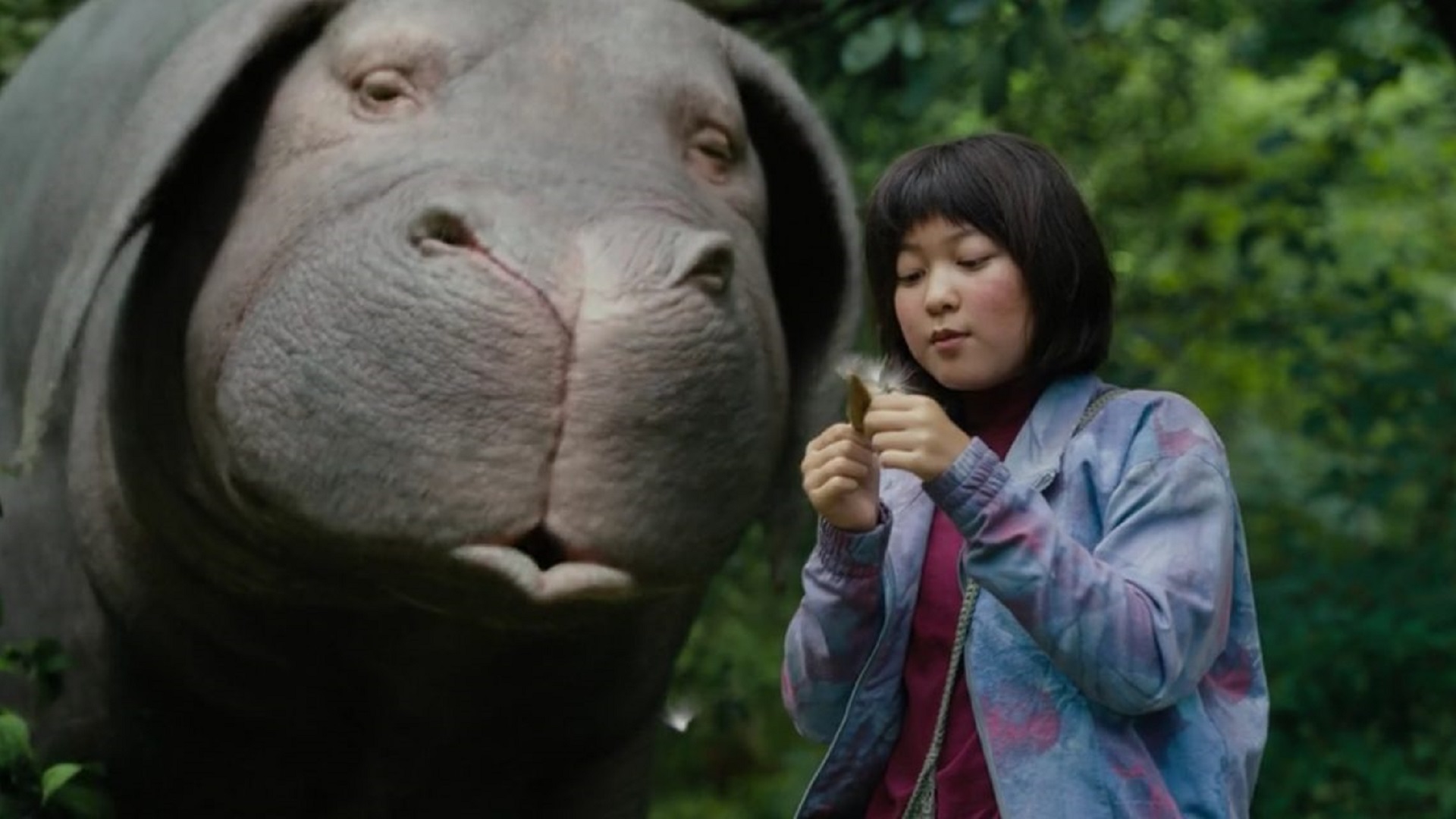 ‘Okja‘ is a testament to how diverse Bong Joon-ho can be in his movies. He has dealt with creature horror (more on that later), to violence against animals, as seen in his directorial debut. In this movie, he takes a stance against animal cruelty. In some ways, ‘Okja’ can be described as a science fiction film, as the titular pig is made in a lab, for further experimentation.
‘Okja‘ is a testament to how diverse Bong Joon-ho can be in his movies. He has dealt with creature horror (more on that later), to violence against animals, as seen in his directorial debut. In this movie, he takes a stance against animal cruelty. In some ways, ‘Okja’ can be described as a science fiction film, as the titular pig is made in a lab, for further experimentation.
However, Okja befriends Mija, and it is their relationship that drives the plot forward. Once Okja is taken away, Joon-ho has no trouble setting the themes of corporate greed while making a pretty strong statement against meat consumption. While ‘Okja’ remains a heartwarming tale, it tends to slow down towards the middle, requiring some focus if you intend to get through the movie.
Once you do, you will not be disappointed, with Joon-ho steering clear of a conventional ending that wraps up everything neatly. ‘Okja’ remains a riveting watch, with Bong once again showing his mastery, especially in certain scenes, like when the pig goes on a rampage in a shopping mall, or with the use of John Denver’s ‘Annie’s Song’.
4. The Host (2006)
 ‘The Host’ ranks highly on this list because it is not often you see a monster movie also serving as a political satire as well as a comedy about a dysfunctional family. If you enjoy creature horrors, it is easy to understand how Bong pays homage to sci-fi movies of the 1950s and 60s, where exposure to radiation leads to dangerous creatures tormenting human society.
‘The Host’ ranks highly on this list because it is not often you see a monster movie also serving as a political satire as well as a comedy about a dysfunctional family. If you enjoy creature horrors, it is easy to understand how Bong pays homage to sci-fi movies of the 1950s and 60s, where exposure to radiation leads to dangerous creatures tormenting human society.
The film starts with noxious chemicals being dumped in the Han river (based on an actual incident in 2000, that had sparked anti-American outrage in South Korea). Once the chemicals make their way to the river, a dangerous creature emerges. Joon-ho’s grip as a director shines through in a fantastically shot scene of panicked fleeing.
During this time, a member of the Park family is taken by the creature. This eccentric family comes together to save one of their own. The Park family comprises of the patriarch who runs a snack stall, a no-good son, and an overachieving daughter, who happens to be an archery champion, among others. This family must not just fight the monster, but government forces, men in hazmat suits, the police, and conspirators.
Through the monster movie, Joon-ho shows how government misinformation works, and how it often aggravates the problem, even resulting in internationally troublesome situations. Considering the movie came out in 2006, the detailing that has gone into the making of the monster is also highly appreciable.
3. Memories of Murder (2003)
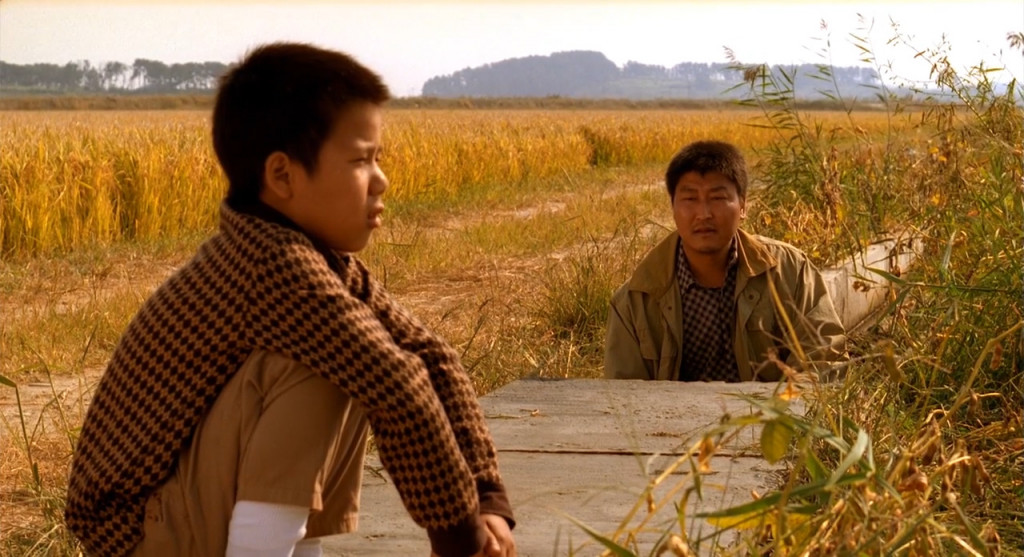 By the time I chanced upon Bong Joon-ho’s ‘Memories of Murder‘, I’d already seen David Fincher’s ‘Zodiac‘. The similarity in how the movies deal with a serial killer becomes increasingly evident. Joon-ho’s movie, which released way before ‘Zodiac’, easily remains one of the best murder mysteries made.
By the time I chanced upon Bong Joon-ho’s ‘Memories of Murder‘, I’d already seen David Fincher’s ‘Zodiac‘. The similarity in how the movies deal with a serial killer becomes increasingly evident. Joon-ho’s movie, which released way before ‘Zodiac’, easily remains one of the best murder mysteries made.
Concerned with the aftermath of the crime, including tracking witnesses, conducting a thorough investigation, and comforting the survivors, ‘Memories of Murder’ is gripping from start to finish. The premise is based on the real-life murders in Hwaseong, South Korea, where 10 girls were killed over five years. The case remains unsolved.
In the film, we see three detectives coming on to solve the case since the police force is technologically and intellectually unequipped to take on, what seems to be, the first serial killing case they have seen. Among the detectives on board, is one who likes beating confessions out of people, while a city detective puts his faith in the infallibility of DNA evidence. A third detective claims to know the truth by looking in a person’s eyes.
Each believes they can solve the case with their skillset, and they become increasingly disconcerted when they fall short and even arrest the wrong people, while the real killer gets away. Throughout the movie, Joon-ho’s expert direction infuses the very landscape with the horror and pain of these murders, while the ending of coming face to face with the killer, by staring into the camera, is simply masterful in its execution.
2. Mother (2009)
 ‘Mother’ is exactly the kind of movie which resonates with Joon-ho’s request to see foreign films, even with subtitles, just to be exposed to fantastic art. While mainstream films often decide to do away with realism, films like ‘Mother’ become a necessity to keep the very art of cinema alive.
‘Mother’ is exactly the kind of movie which resonates with Joon-ho’s request to see foreign films, even with subtitles, just to be exposed to fantastic art. While mainstream films often decide to do away with realism, films like ‘Mother’ become a necessity to keep the very art of cinema alive.
It starts off with a simple enough premise. A man is accused of murder. His mother is galvanized into action, trying to prove his innocence. There are only two directions that the film can go in, from here. Either the son is guilty or not. Despite the straightforward premise, Joon-ho tracks the actions of the mother.
She is relentless, questioning neighbors, often harassing them, challenging the police, and hiring a worthless lawyer. We are given all the information that she has. Once we know that her son is not completely in charge of his mental faculties, and has a manipulative friend, the case becomes more open.
The friend might have committed the crime, and framed him. After all, the evidence found at the scene is a little overt, and the police have no trouble in extracting a confession from the simpleton. However, it is the mother’s persistence that keeps the case going and keeps upsetting all our assumptions about the case.
Without spoiling the end of the drama, suffice it to say, Joon-ho masterfully retains a grip on the pacing of the tale, revealing details as and when needed, as ‘Mother’ becomes another fantastic example of family ties challenging the state mechanism.
1. Parasite (2019)
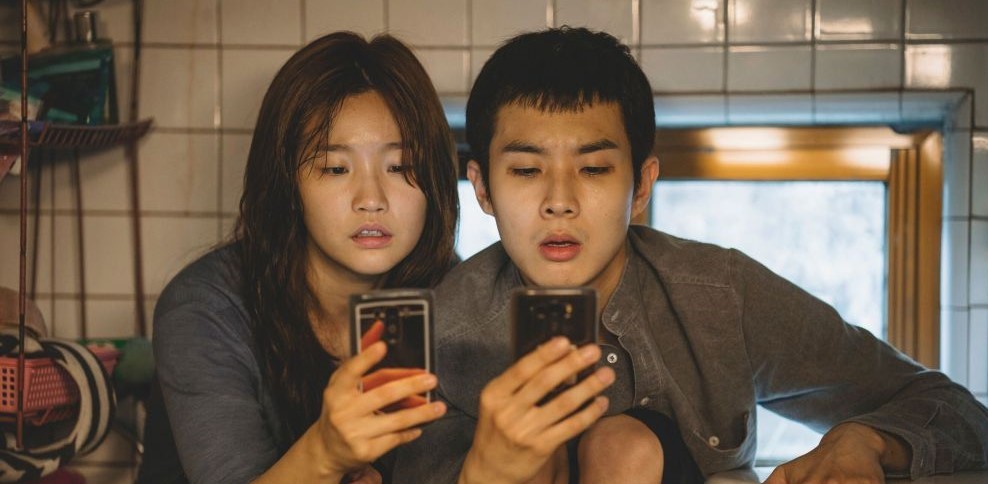 I think it was clear that ‘Parasite‘ would top this list, going by how I was gushing about the film earlier in this article. It is truly a case where Joon-ho has outdone himself, and at the risk of making a slightly controversial statement, I doubt the director will be able to top ‘Parasite’.
I think it was clear that ‘Parasite‘ would top this list, going by how I was gushing about the film earlier in this article. It is truly a case where Joon-ho has outdone himself, and at the risk of making a slightly controversial statement, I doubt the director will be able to top ‘Parasite’.
Ever so often, a movie comes along that shakes you to the core, as you acknowledge that you’ve witnessed something new on-screen. Joon-ho’s dark comedy does so, effortlessly. Right from the start, the movie sets the atmosphere wonderfully, with the poverty-stricken family living underground.
Their parasitic tendencies, which are justifiable in their economic conditions, become evident – from the search for free wifi to risking momentary choking for free fumigation. However, the family sees a chance to turn the fortunes around, when the young son is offered the job of an English teacher to a wealthy family’s girl, by his supportive friend. Soon, there is a literal invasion, as the different members of the poor Kim family, infiltrate various positions in the wealthy family’s life.
The father becomes the chauffeur, the daughter comes as an art therapist, while the mother becomes the housekeeper. The way they insiduously remove the former employees makes for some wonderful sequences, and shows how poverty drives us to unethical actions. Joon-ho’s critique of class disparity does not end there, and the underground becomes synonymous with poverty.
It appears that the old housekeeper’s husband has been hiding in the rich family’s basement for the longest time. This is where the director masterfully injects a degree of class conflict, contrary to the class solidarity the Kim family might have felt towards the old housekeeper and her husband.
I’d have to say that this section of the movie is also my favorite, as Joon-ho effortlessly shows how the poor are often left to the mercy of nature, even in a modern city. While the Kim family enjoys the thunderstorm in the rich family’s mansion, they return home to see it flooded completely. The tensions between the old housekeeper and her husband and the Kim family keeps increasing.
The class discontent is always there, starting from how the old employee feels towards the Kim family, and extends to the Kim family itself, when the patriarch has to deal with comments about how poor people smell different. It bubbles forth to an excessively violent scene, marking the movie’s climax.
Joon-ho’s signature black comedy also shines through, in a scene where the rich family’s dog gets some food off the skewer which has been used to stab a person. Towards the end, the film shines a light on the father-son bond, and some might even say it ends on a note of hope. However, I feel, it ends with Joon-ho at his most cynical, telling us not to put too much faith in the son’s grand plan to free the father.
After all, the family patriarch himself says that not having any plans is the best way to live. Whatever differences of opinion one might have about the ending, it is a fact beyond contest that ‘Parasite’, until now, is Joon-ho’s masterpiece.
Read More: Parasite Ending, Explained
